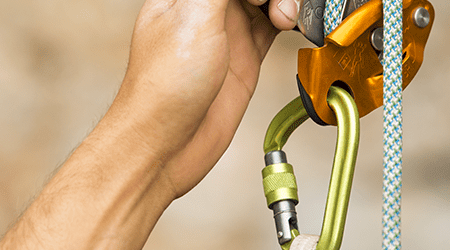When you get out of the weeds of audit reform, Restoring trust in audit and corporate governance is largely prompted by corporate collapse and the finding of fraud, points out Katharine Bagshaw, ICAEW’s Manager, Auditing Standards. But do you think the approach suggested by BEIS in its White Paper is the appropriate one? Let’s look at who is in the frame.
First up are company directors. Clearly, they are responsible for approving the company’s annual accounts, safeguarding its assets, and are expected to take reasonable steps to prevent and detect material fraud. In line with the Brydon Review’s recommendation, the government proposes to legislate to require directors of Public Interest Entities (PIE) to report on the steps they have taken to prevent and detect material fraud.
Secondly, auditors are required to take certain steps where they suspect that irregularities, including fraud, may have occurred in relation to a PIE’s financial statements. The Brydon Review recommended that the regulator amend the auditing standard on fraud to make clear that the onus is on the auditor to endeavour to detect material fraud in all reasonable ways. Now the government intends to legislate to require PIE auditors to report on the work they have performed to conclude whether the proposed directors’ statement – regarding actions taken to prevent and detect material fraud – is accurate.
Thirdly, the Brydon Review recommended that an accessible register of corporate frauds be maintained by the regulator to enable auditors to learn from these cases. The government agrees, but significantly it adds that auditors should collectively seek to take it forward, with the regulator providing input.
Taking these points in turn, Bagshaw points out that directors already report on the efforts they have made to detect fraud when reporting on internal control activities. But there may be issues around the quality of that reporting and the temptation to fall back on boilerplate. Furthermore, to date, there has been no real method for evaluating what directors have done. Will legislation in this area turn the dial on what directors do, as well as what they report? And will auditor reporting on the ‘factual accuracy’ of the directors’ statement actually improve director or auditor performance? Possibly, if enhanced reporting requires directors and auditors to report on internal control effectiveness. If not, the proposals may instead create substantial expectations that are hard to meet.
As for the compilation of a register of historical fraud cases, Bagshaw points out that, in its response to the Brydon Review, ICAEW said it was for the regulator to take this forward. The rationale for this being that audit firms – if it were their responsibility to do this – may be confronted by legal and confidentiality problems that could hinder progress. “Raising awareness of fraud is a really good idea,” says Bagshaw, “but are auditors the right people to take it forward?”
Bagshaw is emphatic that reform must result in fraudsters having fewer places to hide and that it is vital for the profession to feed back to government – including through ICAEW – on how best this is to be achieved. She points out that issues around the perpetration of fraud are often really not simple at all.
“It’s easy to assume that fraud will be obvious for anyone with eyes to see” she says. “But often it isn’t. It can emerge slowly from the shadows and it’s the courts in the end that have the final say”.
ICAEW wants to ensure members have their say on the upcoming consultation around restoring trust in audit and corporate governance. To do so, please share your thoughts via this feedback form. We cannot guarantee all responses will be incorporated in ICAEW's final submission but they will all be read and considered.
Have your say - audit and corporate governance reform: ICAEW is running two webinars to give members the opportunity to have their say on the proposals, its impact, and the direction of travel. Times and links are below:
More on audit
At Virtually Live 2021, Sir Jon Thompson gave a keynote on audit reform and John Selwood described ICAEW's Quality Assurance Department project 'Audit: What good looks like'. Watch the recordings.




